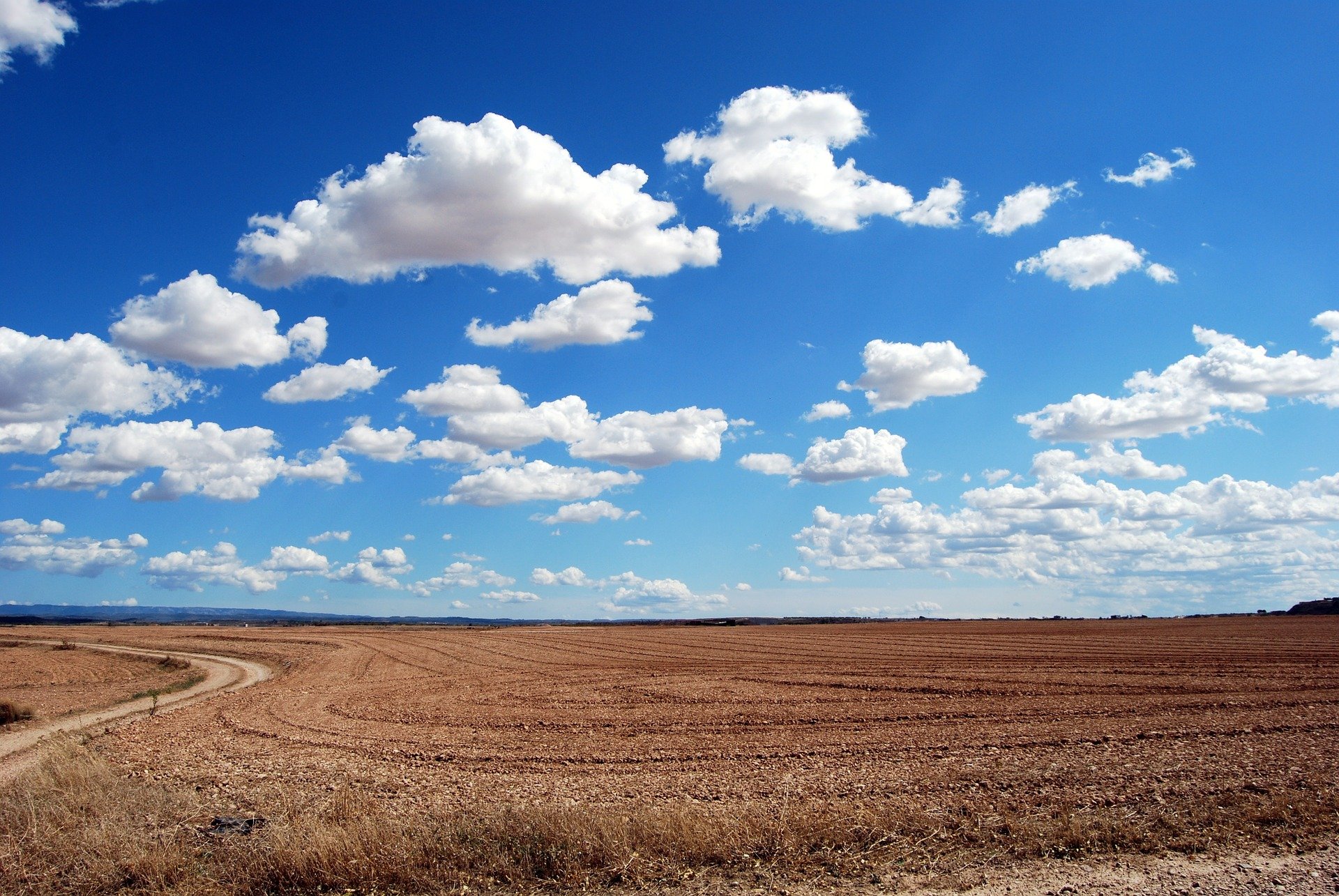11 Reasons Why Buying Land for Investment is a Great Idea


If you’re thinking about investing in commercial real estate then this is definitely an exciting time for you. Purchasing the right property can provide you with extra annual income and a very nice return if you choose to sell it sometime down the road.
But what kind of property should you choose? There are plenty of options and one idea that often gets overlooked is buying land for investment. While it may not seem as exciting as other property types, we’re here to show you why this might just be the best choice for your portfolio.
Below you’ll find everything you need to know about purchasing land, along with 11 reasons why buying land is a good investment.

Terms to Know
To start, let’s go over a few of the terms you’ll need to know if you’re thinking about purchasing land:
Air Rights: The space above the land. Having the air rights gives you the ability to use, rent, or develop that space.
Building Height Restrictions: Every piece of land has restrictions defining how tall a structure on the land can be.
Floor Area Ratio (FAR): A building’s total floor area in relation to the plot of land it sits on. Every property will have a FAR that it must adhere to.
Ingress and Egress: The right by a property’s owner to enter (ingress) and exit (egress) the property. This is important if you purchase a piece of land that doesn’t have direct road access.
Mineral Rights: The ability to extract minerals (oil, gas, coal, metal ores, stones, sands, or salts) from the land.
Parcel of Land: A lot of land that’s been defined by the county, city, or municipality.
Permitted Uses: Other uses for the land that city or county officials may allow despite the property’s zoning regulations.
Raw Land: A plot of land that doesn’t have any established structure on it, that can be used for commercial or residential development, farming, or the harvesting of natural resources.
Subdividing: The process of dividing a lot with the goal of developing different areas separately.
Topography: The shape and features of the land. For example, is the land bare and flat, or are there plenty of hills and vegetation?
Water Rights: The right of a property owner to use any body of water on their land as they see fit, as long as it doesn’t affect those upstream or downstream.
Zoning: Rules and regulations that govern what a piece of land can be used for, as defined by the county or municipality.
Zoning variance: A request made by the property owner to use the land for purposes other than what’s permitted by the current zoning regulations.

11 Reasons to Buy Land for an Investment
Considering investing in raw land? Here are a few reasons why this is a great idea:
It’s Inexpensive
Perhaps the best reason to buy vacant land is that it’s cheap, since the lack of any physical structures brings the price way down.
Of course, if you plan on developing the property there will be significant costs involved. However, there’s nothing stopping you from leaving the land as-is and treating it as an investment.
For new investors with a smaller budget, this can be a great way to enter the market.
There’s Less to Worry About
Most commercial properties you’ll buy will come with a variety of buildings and structures. While some will be in good shape others may be in need of repairs. Because of this, you’ll need to inspect any buildings on the property carefully to identify potential issues.
You’ll also likely inherit a few tenants. For the most part this will be good, but it’s possible you might end up with some troublemakers. And if the property has a high amount of vacancy you’ll have to figure out how to fill the empty spaces.
With raw land, you won't have to deal with these problems. This makes the buying process a lot simpler.
You Don’t Need to Maintain It
If you have buildings on your property they’re going to need to be maintained. It doesn’t matter how new the buildings are or what shape they’re in when you buy them, they’ll require regular maintenance to keep them in proper working order.
With any sort of structure also comes the threat of theft and vandalism, meaning you’re going to have to think about security.
Raw land doesn’t need any maintenance and there’s nothing that can be stolen. This makes it a hands-off investment that won’t require a lot of work.
Fewer Ongoing Expenses
Because there’s no maintenance or management required there are also minimal expenses. There are no utility bills, and property insurance and taxes will be marginal if you don’t plan on developing it.
You also don’t need to worry about the depreciation of buildings and other assets on the land which reduces your risk.
More Possibilities
If you invest in a property with buildings already on it it’s difficult and costly to make changes. For example, say you buy a property with retail spaces on it. If you want to convert it to an office building it’s going to take a lot of time and money to do that.
However, with vacant land you’re only limited by the zoning regulations. And even then, it’s possible you can be granted an exception due to permitted uses or a zoning variance. This gives you a lot more options for development.
Raw Land is Scarce
Whenever a vacant lot gets developed into a condo building, retail center, or industrial property, that’s one less piece of raw land on the market. These types of properties are in decline and it’s getting harder and harder to find undeveloped land to purchase.
As an investor, having a rare commodity is always a good thing. If people are looking for raw land their options will likely be limited. This could mean a higher price for your property when you plan to sell it.
Less Competition
In general, vacant lots have less competition than developed ones. Most investors are looking for land that already has established businesses on it and some don’t see all the great possibilities that raw land provides.
This means there may be an opportunity to get a good deal on a piece of land if you’re willing to do your research. Paying less than market value for an investment to start means an even greater return in the future if you decide to sell.
You’re Often Dealing With Motivated Sellers
Many owners of raw land are what’s known as absentee owners. This means they don’t live in the area. In some cases, they may have never even visited the land.
It’s possible they just purchased it as an investment and are looking to get their money out so they can invest in something else. In this case, there isn’t much of an attachment to the land. They just want to sell it and move on.
If you’re lucky enough to find yourself dealing with someone like this you could end up with a very good price for the land.
You Can Subdivide It
Vacant land gives you the maximum amount of freedom. This includes subdividing it and creating several different lots out of one piece of land.
By subdividing a property you can develop various areas of the land differently, creating different structures and businesses as you see fit.
You can also sell off portions of the land to other investors. This allows you to both develop the land to eventually generate revenue and sell other portions you don’t need to make an additional profit.
Fewer Regulations
As a result of the economic downturn, the US government introduced the Dodd-Frank legislation and the Secure and Fair Enforcement for Mortgage Licensing Act (SAFE Act) in order to regulate the mortgage industry.
However, neither of these apply to the purchase of raw land meaning there are fewer hoops to jump through in order to secure a mortgage and finalize the purchase.
It Provides a Great Return
Like any piece of real estate, the right plot of land can fetch you an excellent return if you do your homework and manage it correctly.
If you develop the land and establish a profitable business on it then it will become considerably more valuable. You will need to invest a lot of time and money in it to make this happen, but the potential rewards are more than worth it.
But you don’t even need to develop it if you don’t want to. If you buy a piece of land in an up-and-coming location there may be significant demand for it in a few years’ time. By investing in the right property you could flip it later for a substantial profit.

3. Investment Strategies
Let’s say you just bought a parcel of land. What can you do with it? It turns out you have a number of different options:
Flip It: This is by far the most popular investment strategy. If you can buy a vacant lot for a low price you may be able to flip it to another investor for a big profit in as little as a few years.
Develop It: This strategy involves a lot more capital. It also requires more research, as you need to make sure whatever you develop is in demand. But if you do it right you can end up with a piece of property that’s far more valuable than the one you started with.
Lease It: If you want your land to generate revenue but you aren’t interested in developing it yourself you can lease it to another party and allow them to use the land for their own needs.
Hold on to It: In the end, you may just decide to hold on to it for an extended period of time. If you’re patient enough the land could appreciate in value tremendously and it could end up being a nice nest egg for you.
4. What Can You Use Raw Land For?
What you use your land for will largely depend on what it’s zoned for. That being said, here are your options:
Residential: Detached single-family homes.
Multifamily: Apartment buildings, condo buildings, and townhouses.
Commercial: Retail stores, restaurants, shopping centers, hotels/motels, office buildings, etc.
Industrial: Light and heavy manufacturing, transportation and utility services, entertainment, and salvage and recycling.
Farming:Agriculture and husbandry.
5. How Much Does Land Appreciate?
How much a piece of land will appreciate in value depends on a number of factors, including:
Location
The economy
The local real estate market
Zoning
Whether or not you develop the land
That being said, on average real estate investments such as raw land appreciate in value by 10.5% per year.
6. Tips for Finding the Best Land to Invest In
While vacant land is a simpler investment than other types of commercial real estate you’ll still need to do your homework in order to find the best property to invest in.
Here are a few tips to help you buy the right land:
1. Perform Inspections:Even though there aren’t any buildings to inspect you should still perform an environmental inspection to ensure there aren’t any issues (contaminated soils, polluted water sources, etc.) that might cause you problems and reduce the value of the land.
2. Consider Topography:Land that’s already relatively flat with little to no vegetation is easier to develop, if you choose to go that route.
3. Ask About Utilities:Some vacant lots already have access to electricity, water, and sewer systems. This is another advantage if you plan on developing the land.
4. Research the Zoning:This doesn’t just impact what you can do with the land, but it could also affect the value moving forward.
5. Know the Regulations:Height restrictions and FAR will also limit what you and future buyers can do with the land.
6. Know the Rights:Does purchasing the property also entitle you to the mineral and air rights?
7. Hire an Architect:These experts will be able to tell you what type of structures can be built on the land.
8. Hire a Commercial Real Estate Broker:No one knows real estate like a broker. They can help you to put a value on the land and assist with negotiations. They’ll also be able to arrange for any inspections you may require.
Conclusion
So, is buying land a good investment? Yes, absolutely.
As you can see, this type of property offers a number of benefits that other lots don’t. Just make sure to do the necessary research before making a purchase. And if you’re at all unsure about the process don’t be afraid to hire an expert to assist you with your investment.

Thank You!
We will contact you as soon as possible.
Be the First One to Know about the
Off-Market Opportunities
Sign up to receive real estate insights and tips direct to your inbox and get exclusive access to investment opportunities.